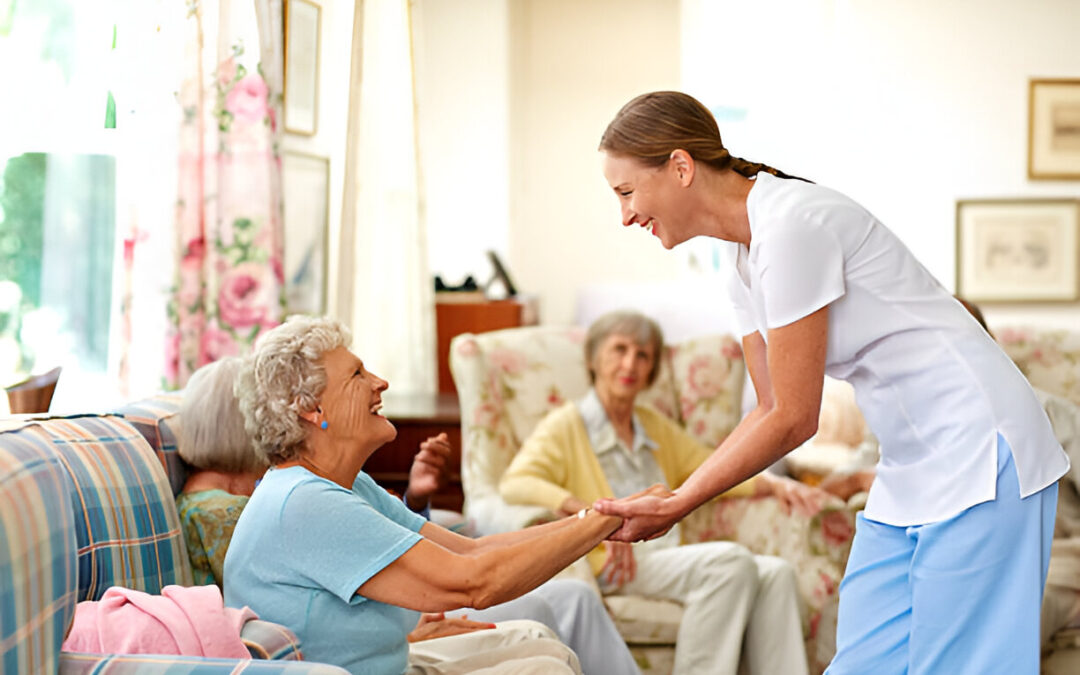As our society ages, the demand for high-quality elderly care is growing rapidly. At the heart of this service are female caretakers, who play a central role in ensuring the well-being of elderly individuals. These caregivers offer a range of services, from assisting with daily activities to providing emotional support. This blog explores the significant contributions of female caretakers. The various services they offer, and answers some frequently asked questions about elderly care.
The Importance of Female Caretakers:
Female caretakers have long been the backbone of elderly care, both within families and in professional settings. Their role goes beyond simply meeting the physical needs of the elderly. They also provide emotional support, companionship, and a sense of security. At Zentouch we have the best team.
Empathy and Compassion: Female caretakers often bring a strong sense of empathy and compassion to their work. This emotional intelligence is crucial in caring for the elderly, who may be dealing with loneliness, anxiety, or the challenges of aging. A female caretaker’s ability to listen, understand, and respond to the emotional needs of the elderly can make a significant difference in their overall well-being.
Holistic Care: In many cases, female caretakers adopt a holistic approach to caregiving. They don’t just focus on physical health but also consider the mental, emotional, and social needs of the elderly. This might involve encouraging physical activity, facilitating social interactions, or simply spending quality time with the person they’re caring for. This comprehensive approach ensures that elderly individuals lead fulfilling and dignified lives.
Key Caretaker Services for the Elderly:
Caretaker services encompass a wide range of tasks, tailored to meet the specific needs of each elderly individual. These services can be provided in the home, in assisted living facilities, or in nursing homes. Below are some of the most common services offered by female caretakers.
Personal Care: One of the primary responsibilities of a caretaker is to assist with personal care tasks. This includes helping with bathing, dressing, grooming, and toileting. For elderly individuals who have mobility issues or other physical limitations, this assistance is essential for maintaining their dignity and personal hygiene.
Medication Management: Many elderly individuals take multiple medications daily, and managing these can be challenging. Female caretakers often take on the role of ensuring that medications are taken correctly and on time, which is crucial for managing chronic conditions and maintaining health.
Mobility Assistance: As mobility decreases with age, getting around can become a challenge. Caretakers help with walking, transferring from bed to chair, and using mobility aids like walkers or wheelchairs.
Household Management: Many caretakers also manage household tasks such as cleaning, laundry, and running errands. By taking care of these daily chores, they allow the elderly to remain in their homes and maintain a sense of independence.
FAQs About Female Caretakers and Elderly Care:
1. What qualifications should a female caretaker have?
A: The qualifications for a female caretaker can vary depending on the level of care required. For basic personal care, caretakers may not need formal qualifications, but experience and a compassionate nature are essential. For more specialized care, such as administering medications or providing physical therapy, caretakers may need certifications or training in specific areas, such as Certified Nursing Assistant (CNA) credentials.
2. How do I choose the right caretaker for my elderly loved one?
A: Choosing the right caretaker involves assessing the specific needs of your elderly loved one. Consider factors such as the level of care required, the caretaker’s experience, and their compatibility with the elderly person’s personality and preferences. It’s also important to check references, ask about their approach to care, and ensure they are reliable and trustworthy.
3. Can female caretakers provide specialized care for conditions like Alzheimer’s or Parkinson’s?
A: Yes, many female caretakers are trained to provide specialized care for conditions like Alzheimer’s, Parkinson’s, and other chronic illnesses. This might involve helping with memory exercises, managing symptoms, and providing physical assistance tailored to the specific needs of the condition. When hiring a caretaker for specialized care, it’s important to ensure they have the necessary experience and training.
The Evolving Nature of Caretaker Services
As our population continues to age, the role of female caretakers is evolving. Advances in technology, such as telemedicine and remote monitoring, are changing the way care is delivered. And allowing caretakers to provide more effective and efficient services. Additionally, there is a growing recognition of the need for support systems for caretakers themselves. It includes respite care and mental health services, to prevent burnout and ensure sustainable care.
Furthermore, the field of elderly care is becoming more professionalized, with an increasing emphasis on formal training and certifications. This trend is helping to raise the standard of care and provide female caretakers with the skills and knowledge they need to meet the complex needs of the elderly population.
Conclusion:
Female caretakers play a vital role in the lives of elderly individuals, offering a combination of physical care, emotional support, and companionship that is essential for maintaining quality of life. As the demand for elderly care services grows, it’s important to recognize the contributions of these caregivers and provide them with the resources and support they need. For further details contact us today. By understanding the various caretaker services available and addressing the challenges faced by female caretakers, we can ensure that our elderly loved ones receive the compassionate, comprehensive care they deserve.

